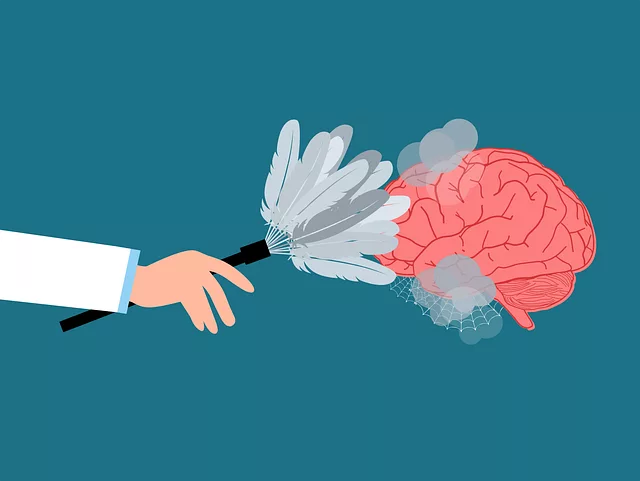The media significantly impacts public perception of mental health, either positively by fostering empathy and reducing stigma or negatively by perpetuating stereotypes leading to isolation. Initiatives like Kaiser Permanente's mental health coverage in Westminster aim to destigmatize mental illness through accessible services, resources, and educational programs. By promoting diverse narratives and normalizing coping strategies, these efforts empower individuals to seek support and foster inclusive conversations about mental wellness. Collaborating with media outlets to showcase authentic stories from various backgrounds can challenge stereotypes and enhance positive representation of mental health issues.
The media’s portrayal of mental illness significantly influences societal perceptions, often perpetuating stereotypes and biases. This article explores strategies to challenge these negative representations, focusing on the collaboration between Kaiser Permanente and Westminster to promote accurate and positive mental health depictions. By examining the current state of mental illness in popular media, we uncover effective solutions to enhance understanding and reduce stigma. Discover how Kaiser Permanente’s initiatives can drive meaningful change, fostering a more supportive environment for those facing mental health challenges.
- Understanding the Impact of Media Portrayal on Mental Health Perception
- Kaiser Permanente's Role in Promoting Positive Mental Health Representations
- The Current State of Mental Illness Depictions in Popular Media
- Effective Strategies for Challenging Negative Stereotypes and Biases
- Real-World Solutions: How Westminster Can Improve Media Mental Health Representation with Kaiser Permanente Coverage
Understanding the Impact of Media Portrayal on Mental Health Perception

The media plays a significant role in shaping public perception about mental health, often influencing how individuals understand and respond to various conditions. Positive and accurate representation can foster empathy and reduce stigma, encouraging those struggling with their mental wellness to seek support. Conversely, negative or stereotypical portrayals can perpetuate misconceptions, leading to further isolation and fear among affected populations. This is particularly important when considering that access to care, like Kaiser Permanente mental health coverage in Westminster, becomes more feasible when societal attitudes are conducive to open conversations about mental illness.
Understanding the impact of media goes beyond individual consumption; it involves critically analyzing the role of popular culture in normalizing or pathologizing different conditions. By promoting Mind Over Matter principles through strategic storytelling and Empathy Building Strategies, media can contribute to a more inclusive and supportive environment for mental wellness discussions. Initiatives such as Mental Wellness Podcast Series Production have emerged to address these challenges, aiming to educate listeners about various aspects of mental health in an engaging and accessible manner.
Kaiser Permanente's Role in Promoting Positive Mental Health Representations

Kaiser Permanente, a leading healthcare organization, plays a pivotal role in shaping public discourse on mental health through its comprehensive mental health coverage and initiatives. With its extensive network across various communities, including Westminster, Kaiser Permanente is committed to destigmatizing mental illness and promoting positive representations in media. By offering accessible mental health services and resources, they empower individuals to seek support and prioritize their well-being.
The organization actively contributes to the cause through various programs focused on self-esteem improvement, depression prevention, and stress management workshops. These efforts not only cater to members but also inspire broader public conversations about mental health. Kaiser Permanente’s proactive approach ensures that media narratives reflect diverse experiences of mental illness, fostering a more inclusive and supportive society.
The Current State of Mental Illness Depictions in Popular Media

The current state of mental illness depictions in popular media is a topic that warrants careful consideration. Often, portrayals fall into stereotypes or dramatic excesses, failing to represent the nuanced reality of mental health struggles. Media platforms, including television shows and movies, have historically relied on simplistic narratives, where characters either become completely consumed by their illness or recover miraculously with minimal support. These representations not only mislead audiences but also perpetuate harmful misconceptions about mental health conditions, such as depression and anxiety disorders.
Moreover, the lack of diversity in these portrayals further exacerbates the problem. Most media content features predominantly white, able-bodied individuals, neglecting the experiences of people of color, those from diverse cultural backgrounds, and individuals with visible disabilities who also grapple with mental illness. This exclusion reinforces systemic biases and limits opportunities for increased understanding and empathy. By contrast, platforms like Kaiser Permanente, known for its comprehensive mental health coverage in Westminster, exemplify progressive approaches to addressing these challenges. They offer resources and initiatives aimed at promoting mental wellness, encouraging open dialogue, and providing accessible coping skills development and self-awareness exercises tailored to diverse populations.
Effective Strategies for Challenging Negative Stereotypes and Biases

To challenge negative stereotypes and biases surrounding mental illness, several effective strategies can be implemented. One key approach is to promote diverse representation in media. This includes showcasing individuals with mental health conditions from various backgrounds, identities, and experiences. By presenting a more nuanced view of mental illness, media can dispel harmful stereotypes and foster empathy among the audience. For instance, featuring characters who practice mindfulness meditation or engage in stress management workshops can help normalize these activities as tools for coping with mental health challenges.
Additionally, organizations like Kaiser Permanente, with its mental health coverage in Westminster, can play a crucial role by providing accurate and balanced crisis intervention guidance. They can collaborate with media outlets to ensure that stories about mental illness are told responsibly, highlighting successful recovery narratives and the importance of seeking help. These collaborations can lead to more informed audiences who understand the complexities of mental health issues, thereby challenging biases at their root.
Real-World Solutions: How Westminster Can Improve Media Mental Health Representation with Kaiser Permanente Coverage

Westminster can significantly improve media representation of mental illness by aligning with leading healthcare organizations like Kaiser Permanente in offering comprehensive mental health coverage. This collaboration can lead to more realistic and empathetic portrayals, challenging stigmatized narratives and promoting emotional well-being. By integrating Kaiser Permanente’s expertise in mental health care into their content creation processes, Westminster can ensure stories accurately reflect the diverse spectrum of experiences.
A key strategy involves implementing a Community Outreach Program that fosters direct engagement with mental health professionals and individuals living with these conditions. This approach allows for authentic storytelling and facilitates understanding on a deeper level. Additionally, incorporating effective Emotional Well-being Promotion Techniques within media platforms can contribute to burnout prevention strategies for healthcare providers, fostering a more supportive ecosystem around mental health representation.
The representation of mental illness in media has a profound impact on public perception and understanding. By challenging negative stereotypes through strategic storytelling and accurate depiction, we can foster a more compassionate society. Kaiser Permanente’s commitment to promoting positive mental health representations, coupled with real-world solutions like those proposed for Westminster, offers a promising path forward. By integrating these strategies into media practices, we can ensure that stories about mental illness are diverse, nuanced, and reflective of the lived experiences of individuals across different communities, ultimately enhancing access to care through increased public empathy and understanding.






